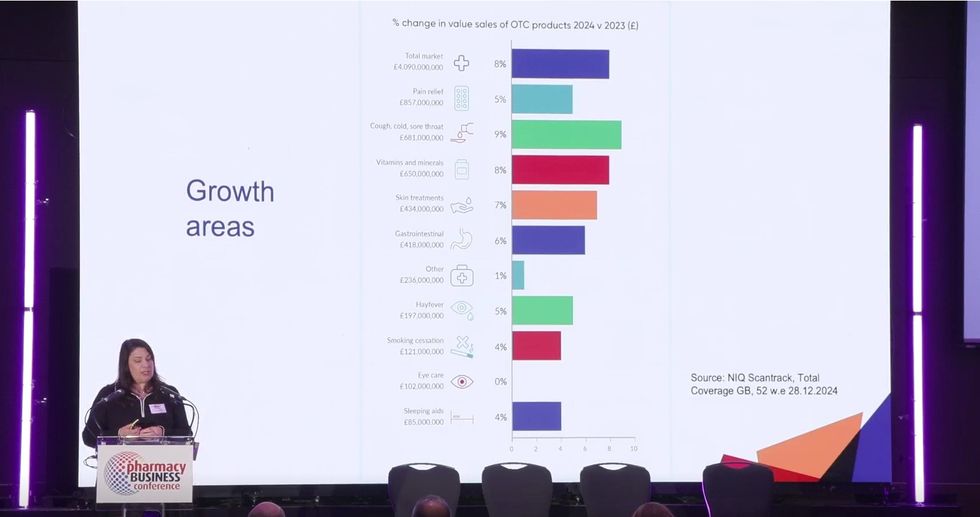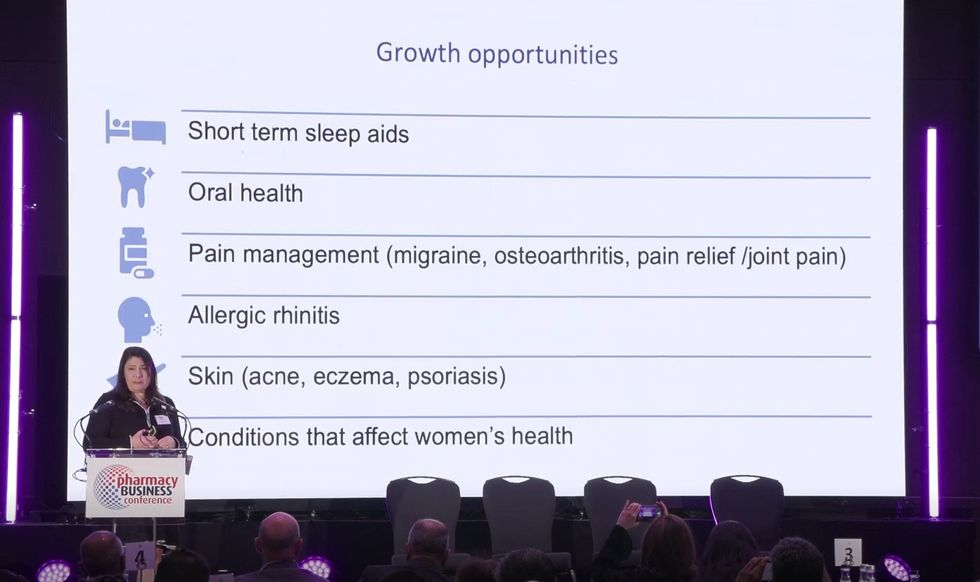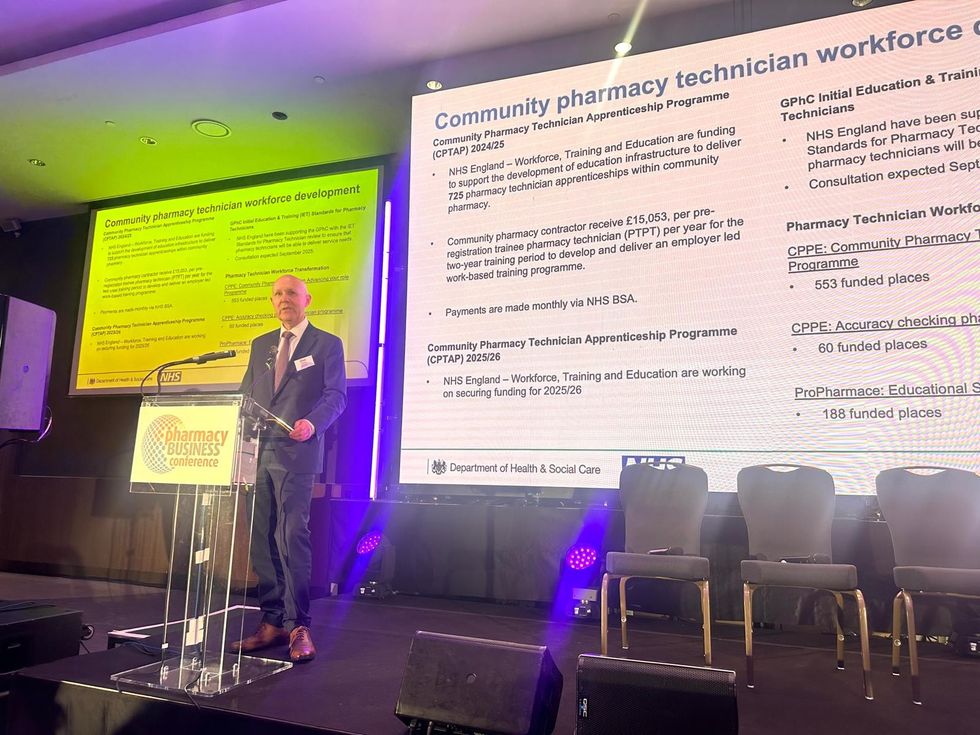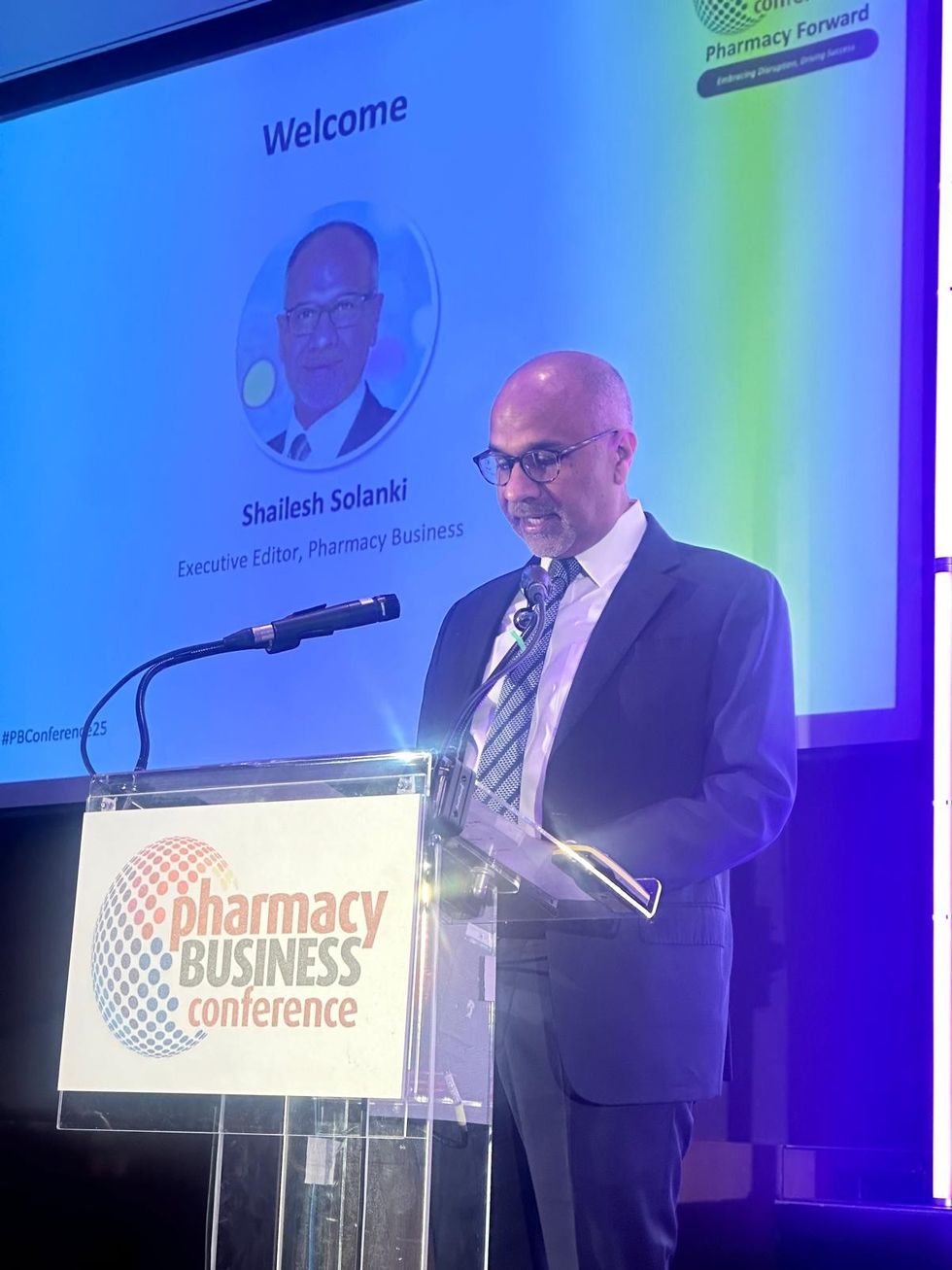Despite the high number of registered female pharmacy professionals, women remain underrepresented in leadership roles across the sector.
“That’s a shame because women bring a different and valuable perspective to leadership,” said Waheedat Owodeyi, owner and superintendent pharmacist, Pharmacyexprezz in Great Yarmouth.
“Women have the drive and ability to lead just as effectively as men. What we need is a level playing field that allows us to demonstrate our leadership and access positions where we can make a meaningful impact,” she told Pharmacy Business.
Owodeyi highlighted several barriers, including a lack of confidence, imposter syndrome, and challenges balancing work and family life, which prevent many women from taking on leadership roles or pursuing entrepreneurship.
“Women don't trust themselves enough. So, when a leadership opportunity arises, they often hesitate to apply for it.
“They will give 10 reasons why they can't, although they have 20 reasons why they should, whereas men will have only one reason why they can, but they will still apply for it.”
“Men tend to push forward, even if they’re unsure, while women often struggle with imposter syndrome, questioning whether they’re good enough despite their extensive experience.”
Societal biases also pose obstacles, with women frequently having to prove their competence in ways men do not.
"When I first started, I would visit care homes to speak with them, and I still do. But often, when I introduced myself, people would ask, 'So who owns the business?' When I told them it was mine, I could sense their surprise, as if they were questioning how I could be the owner and what experience I had,” she said.
Owodeyi shared her own experience of starting a pharmacy while raising young children, emphasising that while balancing family and business is difficult, it is “not impossible.”
“When I started my pharmacy, my kids were just six and five, and many people advised against it. But I thought, if I wait until they grow up, it will only make it harder to progress later,” she said.
Additionally, she noted that women, particularly those from ethnic minorities, may also face racial prejudice.
Owodeyi recalled an encounter where someone remarked, "Oh, I didn’t realise you were black”.
Beyond individual struggles, she stressed the need for systemic support to help women overcome these barriers and access leadership and entrepreneurial opportunities.
Pharmacist to Entrepreneur
Owodeyi’s journey from qualifying as a pharmacist to launching her own business has been one of perseverance and resilience.
She completed her master’s in clinical pharmacy in Nigeria in 2002 and moved to the UK in 2004. But to practice here, she had to meet the country’s regulatory requirements, which included passing an exam and completing a one-year overseas training program at a university.
Following that, she underwent the same process as UK pharmacy graduates—completing a one-year pre-registration placement under the supervision of a pharmacist. She trained at Boots, where she later worked for a year after qualifying in 2007, before joining ASDA Pharmacy.
“At ASDA Pharmacy, I initially appreciated the flexibility that came with extended opening times. But after starting a family, I found it challenging to balance work and childcare,” Owodeyi said.
This led her to transition into locum work, which provided the flexibility she needed to manage her career alongside family responsibilities.
“For nearly a decade, I worked as a locum pharmacist until 2015. Then, in 2016, I took the leap and founded Pharmacyexprezz. This April will mark nine years since I started my own pharmacy,” she said.
Like many entrepreneurs, Owodeyi’s goal was to be her own boss and build something meaningful. However, running a business was not without its challenges.
Owodeyi first applied for a traditional brick-and-mortar store, but her application was rejected. She then applied for an online pharmacy and that too was declined. It took multiple appeals—about three or four sessions—before she finally received approval.
“I want to tell people that when you have setbacks, it doesn’t mean the end of the world. It just means you have to try harder and put in more effort. Failure isn’t truly failure—it’s an experience for you to learn better,” she said.
Although the early days of Pharmacyexprezz were challenging, Owodeyi described the journey as a valuable learning experience.
“It’s a tough journey, but it’s also incredibly rewarding when things finally take off,” she added.
Recently, Pharmacyexprezz moved from an upper floor to a ground-floor location—a change that has significantly improved visibility and accessibility. The relocation also allowed for expansion, increasing the number of consultation rooms from one to four.
“We now view our space as more of a clinic, offering a variety of clinical services. But this is just the beginning—we see this as the start for something much bigger in the future,” Owodeyi said.
Currently, Pharmacyexprezz operates with an even split between private and NHS services, though the majority of its revenue comes from private healthcare offerings.
“If you rely solely on NHS income, it’s difficult to sustain a pharmacy long-term,” she noted.

Beyond prescriptions
When Pharmacyexprezz first launched, its primary focus was prescription services. However, unlike traditional pharmacies where patients can walk in with their prescriptions, online pharmacies must rely on delivery services.
“This meant we had to find outside the box to acquire prescriptions,” Owodeyi explained.
To address this challenge, she decided to work with care homes—an area that remains a key part of the business today.
As time went on, Owodeyi recognised that relying solely on prescriptions wasn’t sustainable—a reality many in the pharmacy industry now acknowledge.
To diversify, she expanded services, starting with flu vaccinations and gradually introducing travel vaccinations, earwax removal, cryotherapy, blood tests, and more.
Training has been a crucial part of this journey—not just for Owodeyi herself but also for her staff.
“My philosophy is that every day, you have to improve yourself and strive to be better. It doesn’t matter by how much,” she said.
“There’s a saying that if you improve by just 1% every day, by the end of the year, you’ll be 70% better. The same applies in reverse—if you let bad habits slip in by 1% each day, you’ll be 70% worse by year’s end.”
“That’s why it is important to pay attention to detail and put in that extra effort to ensure that customers receive the best service while focusing on continuous improvement.”
Online Pharmacy: Pros and Cons
Running an online pharmacy comes with both advantages and challenges, said Owodeyi.
“You don't have people walking into the pharmacy regularly, which means lower footfall. However, it allows us to manage our time better, streamline service delivery, and optimize skill mix,” she said.
“Unlike traditional pharmacies, we’re not constantly interrupted by customers seeking over-the-counter (OTC) products or general inquiries, enabling us to focus on core services.”
In a traditional brick-and-mortar pharmacy, however, customer interactions often lead to additional sales and greater awareness of available services.
To enhance visibility and reach a broader audience, Pharmacyexprezz is actively engaged on multiple social media platforms, including Facebook, Instagram, and YouTube.
Key to success
As Pharmacyexprezz continues to grow and adapt to the evolving needs of its patients, Owodeyi remains committed to ensuring her team is well-equipped to deliver high-quality services.
“I don’t just train for myself—I make sure my staff receive training too,” she said.
Although her team is small, consisting of just two or three part-time dispensers, Owodeyi prioritises their development.
“I believe that the more you invest in training, the more skilled your team becomes, allowing them to take on greater responsibilities,” she added.
One shining example is her pharmacy technician, who joined with no prior experience. She first completed her medicines counter assistant qualification, progressed to becoming a dispensing assistant, and then qualified as a pharmacy technician. She is now training to become an accuracy checking technician, a qualification she is set to complete by the end of the year.
Owodeyi takes pride in her team’s growth, even admitting that her technician has surpassed her in certain skills, such as phlebotomy.
For Owodeyi, investing in staff training isn’t just about improving efficiency—it’s about fostering job satisfaction and confidence.
“You can run your own business, but you can’t do it alone. You need a team, and it’s essential to ensure they are skilled enough to do what you want, help the business grow, and for them to feel valued in the process,” she emphasised.
Beyond training, Owodeyi actively cultivates a positive work environment. She celebrates the pharmacy’s achievements with team events, small gifts, and performance-based bonuses. However, she believes true motivation goes beyond material rewards.
“It’s about how they feel. Are they happy at work? Do they understand their role? Are they eager to learn and grow?” she said.
By prioritizing both professional development and workplace well-being, Owodeyi ensures that Pharmacyexprezz isn’t just a thriving business—it’s a place where people feel empowered to succeed.

Building trust
When asked what sets Pharmacyexprezz apart, Owodeyi highlighted their commitment to building trust and prioritizing patient care above all else.
“I see myself as a small part of the service we provide. When people come in, it’s not just about getting them to spend money—it’s about actually looking after them,” she said.
“At Pharmacyexprezz, we treat each of our clients as an individual rather than a number.
"I might not always remember names, but I remember their stories. When they return and I recall those details, they appreciate that we genuinely care for their well-being,” Waheedat shared.
She believes that strong relationships with customers are the foundation of a lasting business.
Owodeyi’s Advice for Aspiring Pharmacy Business Owners
“It’s not easy—it takes hard work and persistence—but success is definitely possible. This is an industry where, if you put in the effort and think outside the box, you can make it grow.”










 Patricia Tigenoah-Ojo
Patricia Tigenoah-Ojo Baba Akomolafe,
Baba Akomolafe,  Rachna Chhatralia
Rachna Chhatralia Raj Matharu
Raj Matharu


![Potential Side Effects of Mounjaro [What You Need to Know]](https://www.pharmacy.biz/media-library/image.jpg?id=54516976&width=1245&height=700&quality=90&coordinates=0%2C29%2C0%2C29)



 NielsenIQ data shows a positive trend in OTC sales
NielsenIQ data shows a positive trend in OTC sales  Six broad health conditions where medicines can be reclassified are shown on the screen.
Six broad health conditions where medicines can be reclassified are shown on the screen. 


 Health Secretary Wes Streeting addresses Pharmacy Conference via video
Health Secretary Wes Streeting addresses Pharmacy Conference via video  David Webb, chief pharmaceutical officer of NHS England
David Webb, chief pharmaceutical officer of NHS England Shailesh Solanki, executive editor of Pharmacy Business
Shailesh Solanki, executive editor of Pharmacy Business L-R: Yasmin Karsan, Pritee Panchmatia and Fin McCaul
L-R: Yasmin Karsan, Pritee Panchmatia and Fin McCaul  L-R: Baba Akomolafe, Rachna Chhatralia, Patricia Tigenoah-Ojo and Raj Matharu
L-R: Baba Akomolafe, Rachna Chhatralia, Patricia Tigenoah-Ojo and Raj Matharu L- R: Nicola Stockmann, Robert Townsend, Atul Patel and Amerjit Singh
L- R: Nicola Stockmann, Robert Townsend, Atul Patel and Amerjit Singh Wole Ososami, lead pharmacist at Westbury Chemist
Wole Ososami, lead pharmacist at Westbury Chemist